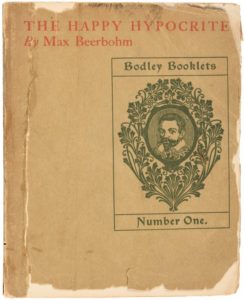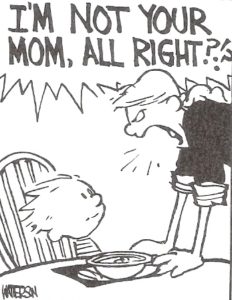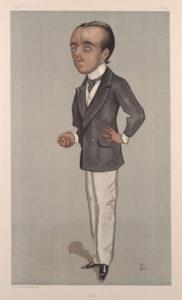 It’s already been a wildly busy year, and I just covered a back-to-back pair of out-of-town shows at Chicago’s Writers Theatre and the Hudson Valley Shakespeare Festival. Not wanting to burn out, I decided to pull the plug and take Mrs. T to Bridgeton House on the Delaware, one of our beloved summertime haunts, for a week of R-&-R. Thanks to my recent orgy of work, my next two Wall Street Journal columns are written and filed and I have no more shows to see until mid-July. My plan is to dine at some nice restaurants in Bucks County, read a couple of books about which I’m not writing, watch a few movies about which I’m not writing, watch the Delaware River flow, and revel in the companionship of my beloved spouse.
It’s already been a wildly busy year, and I just covered a back-to-back pair of out-of-town shows at Chicago’s Writers Theatre and the Hudson Valley Shakespeare Festival. Not wanting to burn out, I decided to pull the plug and take Mrs. T to Bridgeton House on the Delaware, one of our beloved summertime haunts, for a week of R-&-R. Thanks to my recent orgy of work, my next two Wall Street Journal columns are written and filed and I have no more shows to see until mid-July. My plan is to dine at some nice restaurants in Bucks County, read a couple of books about which I’m not writing, watch a few movies about which I’m not writing, watch the Delaware River flow, and revel in the companionship of my beloved spouse.
Memo to the world: if you want anything from me this week, you can’t have it. Ask somebody else.

 Max Beerbohm’s The Happy Hypocrite: A Fairy Tale for Tired Men, written in 1897, is an Oscar Wilde-like fable whose protagonist, Lord George Hell, is a “greedy, destructive, and disobedient” Regency rake whose face bears the marks of his dissolution. Then he falls in love with a sweet, innocent young girl named Jenny Mere. In order to court her, he dons a mask that makes him look like a saint, and endeavors thereafter to live in a manner worthy of his “new” face. Lord George and Jenny marry and live happily together—until one of his former mistresses shows up and, enraged, tears off the mask. But to Lord George’s astonishment, he discovers that the face beneath it is no longer that of a debauched rake:
Max Beerbohm’s The Happy Hypocrite: A Fairy Tale for Tired Men, written in 1897, is an Oscar Wilde-like fable whose protagonist, Lord George Hell, is a “greedy, destructive, and disobedient” Regency rake whose face bears the marks of his dissolution. Then he falls in love with a sweet, innocent young girl named Jenny Mere. In order to court her, he dons a mask that makes him look like a saint, and endeavors thereafter to live in a manner worthy of his “new” face. Lord George and Jenny marry and live happily together—until one of his former mistresses shows up and, enraged, tears off the mask. But to Lord George’s astonishment, he discovers that the face beneath it is no longer that of a debauched rake: I’m not a rake, of course, but I do suffer grievously from the sin of impatience, not with myself but with other people, as well as with such inanimate objects as elevators, stoplights, and toasters. This chronic impatience (to whose existence, I deeply regret to say, Mrs. T can testify) is by far my worst character flaw, a canker of the soul that has been with me for as long as I can remember. When I first read The Man Who Came to Dinner in my far-off youth, I unhesitatingly identified with Sheridan Whiteside’s oft-quoted lament: “Is there a man in the world who suffers as I do from the gross inadequacies of the human race?” Believe it or not, it didn’t hit me until I acted in the play in college that Whiteside is himself the most grossly inadequate of men, precisely because he believes in all sincerity that the rest of the world should cater to his every whim, and thus refuses to make allowances for the all-too-human weaknesses from which he suffers in even greater profusion.
I’m not a rake, of course, but I do suffer grievously from the sin of impatience, not with myself but with other people, as well as with such inanimate objects as elevators, stoplights, and toasters. This chronic impatience (to whose existence, I deeply regret to say, Mrs. T can testify) is by far my worst character flaw, a canker of the soul that has been with me for as long as I can remember. When I first read The Man Who Came to Dinner in my far-off youth, I unhesitatingly identified with Sheridan Whiteside’s oft-quoted lament: “Is there a man in the world who suffers as I do from the gross inadequacies of the human race?” Believe it or not, it didn’t hit me until I acted in the play in college that Whiteside is himself the most grossly inadequate of men, precisely because he believes in all sincerity that the rest of the world should cater to his every whim, and thus refuses to make allowances for the all-too-human weaknesses from which he suffers in even greater profusion. The point, I suppose, is that even if you can’t make yourself over into a better person, it’s no bad thing to at least be able to fool the rest of the world into thinking that you’re the person you wish you were. But long, hard experience has led me to believe that the incomparable Max was kidding himself about the transformative power of a mask of virtue. We are what we are, not what we seem to be—or, alas, what we do.
The point, I suppose, is that even if you can’t make yourself over into a better person, it’s no bad thing to at least be able to fool the rest of the world into thinking that you’re the person you wish you were. But long, hard experience has led me to believe that the incomparable Max was kidding himself about the transformative power of a mask of virtue. We are what we are, not what we seem to be—or, alas, what we do.
